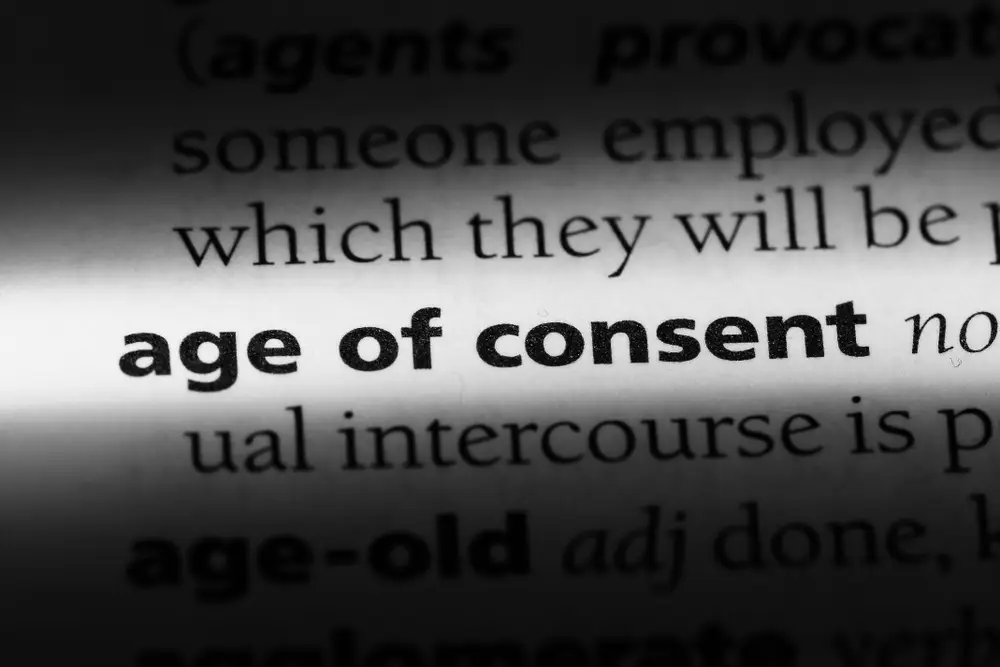When most people hear the term “child abuse,” they think of very young children. However, a large share of school-related sexual misconduct involves older teens, often 15 to 17. A U.S. Department of Education–commissioned review estimated that about 9.6% of K–12 students experience some form of educator sexual misconduct by graduation, which includes verbal, visual, and physical behaviors. More recent summaries still reference a roughly 10% lifetime exposure estimate.
In many states, adults in positions of trust such as teachers, coaches, clergy, or mentors can be prosecuted for sexual contact with 16- or 17-year-olds in their care. But in others, these relationships may be legal if the teen has reached the state’s general age of consent, despite the power imbalance.
This gap in protection is more common than many realize. According to the nonprofit Enough Abuse, 39 states and Washington, D.C., have criminal statutes that specifically prohibit sexual activity between school employees and students who are above the general age of consent but under 18. That leaves 11 states without such specific authority-figure laws, meaning cases can stall if the only element is the position of trust and the teen is old enough under general consent rules.
(Those 11 states without an educator-specific sexual misconduct law: CA, OR, ID, ND, SD, NY, MA, PA, RI, WV, VA)
What Authority-Figure Consent Laws Do
Authority-figure consent laws recognize that genuine consent is not possible when one party has institutional or supervisory power over the other. They remove “consent” as a legal defense in relationships between older teens and adults in trusted roles. These statutes often apply to:
• Teachers, coaches, and school employees
• Religious leaders
• Youth program leaders and mentors
• Law enforcement or corrections officers supervising minors
In states with these protections, an adult can face felony charges for sexual contact with a 16- or 17-year-old student or supervisee, regardless of whether the relationship is claimed to be consensual.
How Age of Consent Interacts with Authority Laws
The general age of consent varies by state. In 34 U.S. states, the age of consent is 16. In 6 states, the age of consent is 17, and in 11 states, it’s 18.
Without an authority-figure statute, a 16- or 17-year-old can legally engage in sexual activity with an adult, even if that adult is their teacher, coach, or religious leader. Where authority-figure laws exist, the legal threshold for consent is effectively raised to 18 within those relationships.
Examples of State Approaches
• Texas: Makes it a felony for an educator to engage in sexual contact with a student in the same school district, regardless of the student’s age.
• North Carolina: Criminalizes sexual activity between school personnel and any student at the same school if the adult is at least four years older, even if the student is over the general age of consent.
• Colorado: Defines “sexual assault on a child by one in a position of trust” to include sexual activity with anyone under 18 when a supervisory role exists.
• Washington: Criminalizes sexual misconduct with an enrolled student aged 16–20 by a school employee who is at least five years older.
What Does “Grooming” Mean?
Grooming is when an adult builds a false sense of trust with a child or teenager to prepare them for sexual abuse. This often starts with extra attention, gifts, or special privileges, making the young person feel important or “mature for their age.” The adult may encourage secrecy about their interactions, framing the relationship as special or normal. In reality, grooming is a deliberate tactic to cross healthy boundaries and exploit trust. When abuse happens, it is never the fault of the child or teen. Adults in positions of authority — like teachers, coaches, or mentors — have a responsibility to protect young people, not harm them.
Legislative Protection Against Grooming
Authority-figure statutes are designed to address the reality that abuse by trusted adults is often preceded by grooming — a gradual process of building trust and isolating the teen — and that the imbalance of power can override true consent. Studies show that in educator sexual misconduct cases, the average age of the targeted student is between 15 and 17, underscoring how often abuse occurs near the age-of-consent line.
The differences between states mean that in one jurisdiction, a coach having sexual contact with a 17-year-old could face prison time, while in another, it may be legal. Understanding whether your state has an authority-figure law is critical for prevention, enforcement, and advocacy.
Does Your State Criminalize Educators Who Groom?
EnoughAbuse.org has a few interactive useful tools. The non-profit’s Criminalizing Educator Sexual Misconduct Map allows you to see if your state has a statute against adult-teen sexual relationships. If your state lacks one, Enough Abuse’s States Policy Exchange connects you with advocates to introduce such a law in your state, including model laws that ban educator sexual misconduct and the practice of using age of consent as a defense in cases where an adult is in a position of authority or trust.
If you experienced sexual abuse or exploitation by someone in a position of authority, it is never too late to explore your legal options. Many states have extended or reopened “lookback windows” for filing claims because lawmakers increasingly understand that trauma can delay disclosure. Speaking with an experienced attorney can help you understand your rights today.
